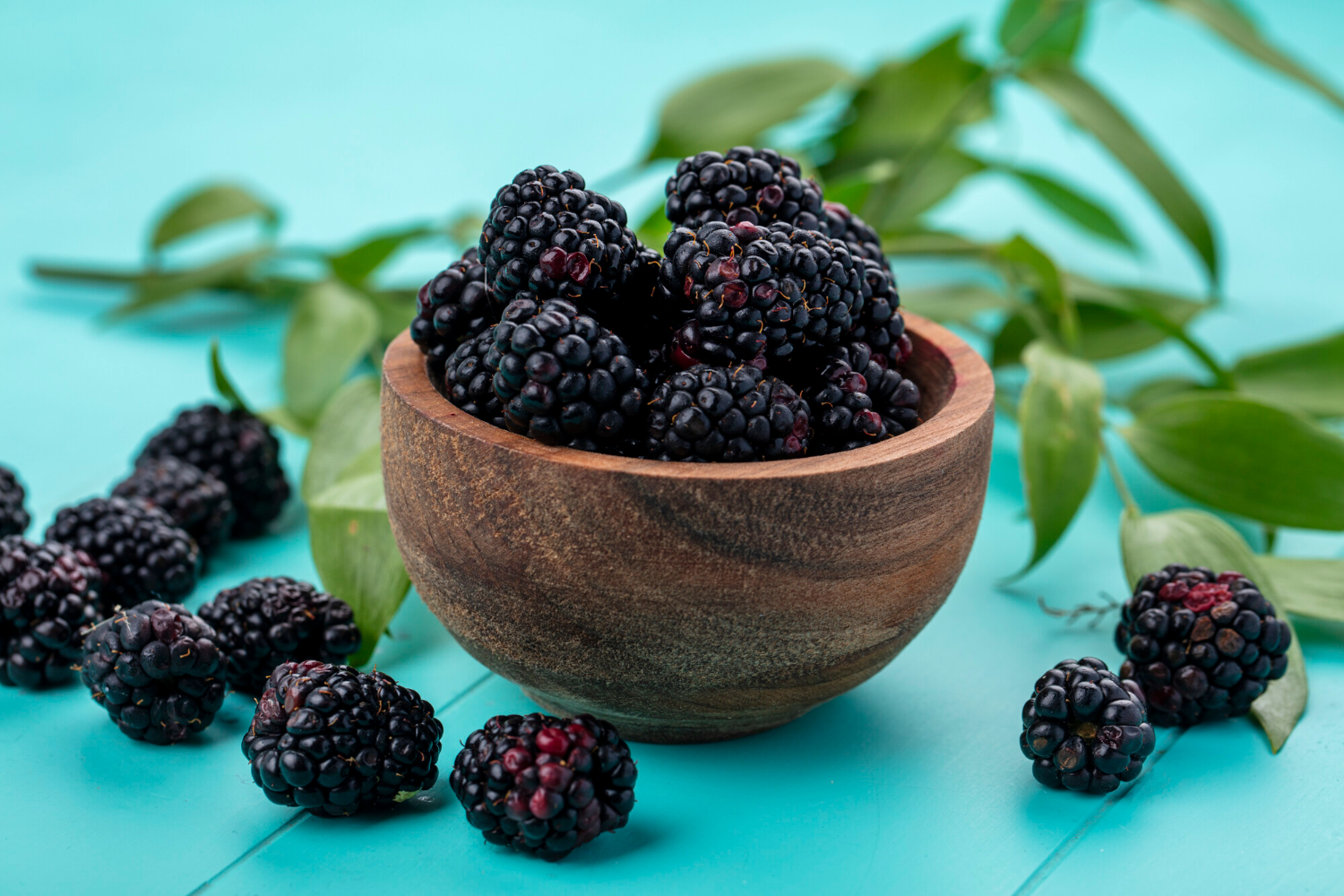Various diet methods are introduced through time, providing several meal plans and patterns for the diet-conscious. A ketogenic diet (keto diet, simplified) is focused on reducing the carbohydrate content and increasing the fat content. Several studies are known to improve weight reduction and overall health. It is also linked to provide immunity against cancer, diabetes, epilepsy, and Alzheimer’s disease.
The ketogenic diet involves drastically reducing the carbohydrate intake and further increasing fat in your meal. This places your body in a ketosis state, wherein your body efficiently burns excess fat to produce energy. Certain fruits like bananas and apples are not recommended for a keto diet. Blueberries, however, can be keto diet-friendly.
Are Blackberries Keto?
Blackberries contain a shallow carbohydrate content. A 100 gram of blackberries only provides 16 grams of total carbohydrates, which is ridiculously small compared to other fruits. This fruit has low carbohydrate content but with high fiber. Fiber is essential to absorb excess fat and food, which is later released away from the digestive tract. This provides access for crucial nutrients to be absorbed quickly by the body.
It will be a bit difficult for people using the keto diet to find certain fruits that can provide necessary nutrients without loading too many carbohydrates. Carbohydrates are essential to provide energy to your body. Still, it requires exercise and daily movement to prevent you from forming excess body fat. For people that don’t have time to do training, using a ketogenic diet is recommended.
Ketogenic diets open doors for people with minimal exercise time. In this diet, it will turn the body to adapt to its primary energy source. Instead of carbohydrates, the body will resort to using fat. Body fat is harder to convert in energy, which is not recommended for people requiring enormous energy storage.
While fresh blackberries are considered keto-friendly, canned and dried variants are not recommended. Canned and dried blackberries contain too many carbohydrates—that are not fit for the keto diet. An immense number of sugars are added to preserve the fruit for more extended periods in the canning and drying process.
Are Blackberries Low Carb?
While fruits are generally known to provide carbohydrates, there are still fruits that people can eat in the low-carbohydrate diet. Certain fruits like olives, avocadoes, tomatoes, and berries can be consumed by people checking their carb consumption. Blackberries have a minimal-carb content, which can be helpful for people that are using the keto diet.
To stimulate and sustain ketosis, the body should only consume not more than 30 grams of carbohydrates. While the ketogenic diet provides room for you to consume green vegetables, many fruits are still suggested to stimulate a balanced diet. In the case of blackberries, eating them together with vegetables can enable low-carb living.
Eating fresh fruit variants is recommended compared to commercially-produced meals. Canned and dried fruits tend to have higher carb content—because of the sugar and other preservatives that upsurge the fruit’s carbohydrate content.
How Many Net Carbs Are in Blackberries?
Eating blackberries is highly recommended for people that are undergoing the keto diet. Aside from eating on its own, you can mix this fruit with other keto diet-friendly meals like cheese, Greek yogurt, avocados, and even vegetables. Blackberries have a tart flavor profile and can work well with dairies or provides the right zing of acidity for vegetables.
Blackberries are low in carbohydrates and high in fiber, making them an ideal fruit consumed during the keto diet. While a single serving of blackberries provides 16 grams of total carbs, it only has 11 grams of net carbs. Net carbs are carbohydrates found in a particular food that can be digested by your body to be used as energy.
To compute the food’s net carbs, the total carbohydrates are subtracted with fiber and sugar alcohols. Fibers are not included in the net carbohydrate count since our body passes out fiber during the digestion process. Like fibers, sugar alcohols are considered insoluble, which are later released by the body.
Net carbohydrates are essential to regulate the body’s carbohydrate consumption. Excess carbohydrates found in several foods like pasta, bread, and sugars can cause inflammation of the joints, spike your blood sugar levels, disrupt your body hormones, trigger food cravings, and mess up your gut bacteria. It can also contribute to insulin resistance, diabetes, obesity, and metabolic syndrome.
Which Berries Are Best for Keto?
Suppose you want to include fruits on the list of foods to consider in your keto diet journey, the rule of thumb is to select fruits that are tart and savory. Sugary fruits tend to have an immense amount of carbohydrates, which repels your body to undergo ketosis. To burn excess fat, you need to train your body to burn fat instead of carbohydrates.
While berries have a slightly higher sugar content than avocadoes, these fruits still have lower carb content than other fruits. Berries also have a great nutritional profile. This fruit family is loaded with essential vitamins and minerals to improve your body’s immune system. These fruit types also contain fiber that aids in the digestion process of our body, thus stripping excess body fat.
Aside from blackberries, there are other types that you can consider. Raspberries, strawberries, and blueberries are some of the berry-named fruits you can eat during the keto diet. Listed below are some of the total net carbs of these fruits.
- Raspberries contain 7 grams of net carbs.
- Blackberries contain 6 grams of net carbs.
- Strawberries contain 8 grams of net carbs.
- Blueberries contain 17 grams of net carbs.
While blueberries have a doubled amount of carbohydrates compared to the remaining berries, this fruit can still be considered under the keto diet. You can reduce the net carbs consumed by your body by splitting the usual blueberries serving into two. Moderating your carb consumption is the key to sustain your body’s keto diet.

